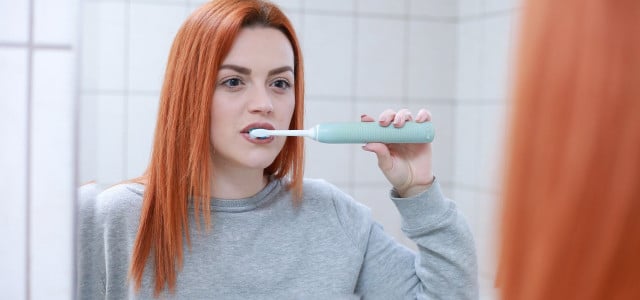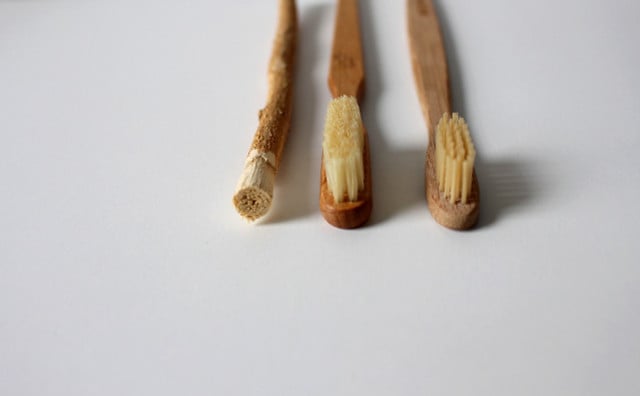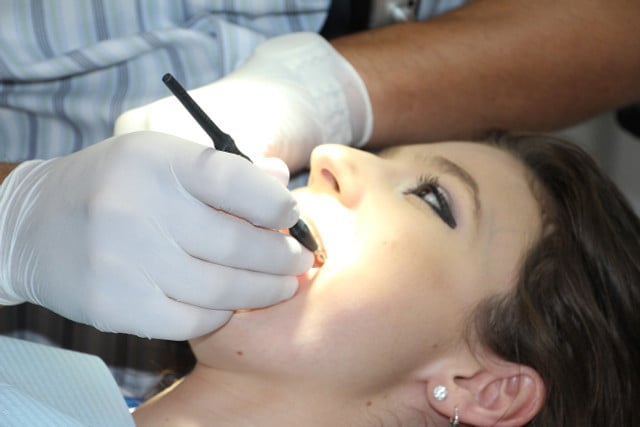
According to a widely held belief, it is better to wait to brush your teeth after eating. But that has now been disproved. We’ll tell you what it’s all about and how you can make it better.
Maybe you also stick to this rule: You should wait 30 minutes before brushing your teeth after eating, otherwise the enamel will be attacked and part of the tooth substance will be removed. This is especially true if you’ve eaten something acidic like fruit or had a soda. Within the thirty-minute break between eating and brushing your teeth, the enamel should have recovered so that you can reach for the toothbrush without hesitation.
That’s just not true at all.
That’s why you don’t have to wait to brush your teeth after eating

(Photo: CC0 / Pixabay / Monfocus)
According to a study by the Swiss caries researcher Adrian Lussi, it actually makes no sense to wait 30 minutes after eating. A second study also came to the conclusion that brushing your teeth shortly after eating is not harmful. Instead, you should therefore be more careful not to eat too much acidic food between the main meals. Because your teeth are almost permanently exposed to the acid, which is harmful to them. A meta-study from 2020 confirms these findings.
This is for the following reasons:
- Several hours or even days would have to pass before the enamel had enough protection against abrasion by the toothbrush.
- It is also not true that saliva provides sufficient remineralization to rebuild tooth enamel. The reason for this are proteins in the saliva that inhibit this process. Since nothing is rebuilt, you can start brushing your teeth right away.
- Adrian Lussi’s study also shows that waiting longer to brush your teeth after eating could result in even greater harm. Sugar and acids contained in food can promote tooth decay. Caroline Ganß from the Polyclinic for Conservative Dentistry and Preventive Dentistry Gießen also explains that the risk of caries due to waiting longer is a bigger problem than brushing your teeth directly after eating.
Prevent tooth decay: These dental care methods make more sense

(Photo: CC0 / Pixabay / rgerber)
Since tooth decay can damage your teeth significantly more than brushing your teeth after eating, it is important to prevent tooth decay. The Dental Association of North Rhine recommends the following measures to prevent tooth decay:
- Practice consistent dental care. This includes brushing your teeth every day after breakfast and dinner and using dental floss properly.
- Eat foods high in sugar or carbohydrates in moderation. Much more than the pure amount of sugar, the frequency of consumption also plays a role in the development of tooth decay.
- Use toothpaste that contains fluoride or season with fluoridated table salt. Fluoride makes the teeth harder and thus prevents too much tooth substance from being removed.
- Regular dental check-ups and professional teeth cleaning are also important.
Read more on Techzle.com:
- Fear of the dentist: tips for children and adults
- Remove tartar yourself: methods and possible risks
- Bamboo toothbrushes in comparison: Recommended manufacturers